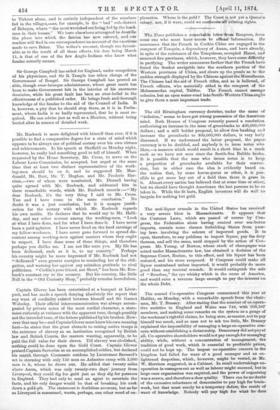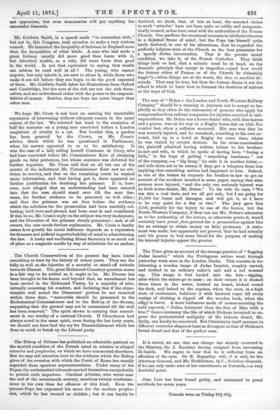The annual Co-operative Congress commenced this year at Halifax, on
Monday, with a remarkable speech from the chair- man, Mr. T. Brassey. After stating that the number of co-opera- tive societies in England and Wales was 746, with 300,587 members, and making some remarks on the system as a gauge of the workman's rightful claims, he being sure, as master, not to pay himself too much, and as man not to ask too little, Mr. Brassey explained the impossibility of managing a large co-operative con- cern without establishing a dictatorship. Democracy did notpayat all. Co-operative shareholders would not pay enough for managing ability, while, without a concentration of management, the tradition of good work, which is essential to profitable prices, could not be kept up. The largest co-operative concern in the kingdom had failed for want of a good manager and an en- lightened despotism, which, however, might be vested, as Mr. W. Morrison suggested, in a Cabinet. In small undertakings co- operation in management as well as labour might succeed, but in large ones organisation was required, and the power of organising was a scarce, and therefore a dear quality. There can be no doubt of the excessive reluctance of democracies to pay high for brain- work, but that must surely be a temporary defect, the result of want of knowledge. Nobody will pay high for what he does
not appreciate, but even democracies will pay anything for successful Generals.



































 Previous page
Previous page